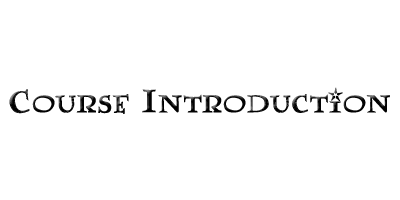

| COURSE DESCRIPTION Although this course is required for Religious Studies majors and minors at the Claremont Colleges, it is open to any student interested in the history of the concept of “religion” in modern academic culture: its origins, its contents, and how it has been understood and deployed in various contexts. Where does our concept of “religion” come from, and why is it so durable in our culture? How has it spread across the globe, framing our understanding of “other” cultures? How natural is the category of “religion”? Can it change? Should it go away? In this class, students will examine both classic and more recent texts that introduce both theories of the origins of religion and methods for the study of religion. Often, these methods and theories are mutually reinforcing: the way we understand the nature of religion determines what we think is the best way to study and analyze it. We will also explore the intersectionality of religion: how has religion influenced, and been transformed by, modern and postmodern critiques of politics, gender, sexuality, and identity? How can—and how should—scholars of religion respond to these changing contexts? This course will operate as a discussion: we will come together and pick apart texts, ideas, and concepts as a group. Preparation and participation are, therefore, key, not just for your grade but for the smooth flow of the class. We will be using Sakai forums to help us coordinate our thoughts before coming into class: the class will be divided into two “teams” and on any given class day members of one team will post comments to the day’s readings and members of the other team will post responses to those comments. All posts and responses should be up by midnight of the evening before class, to allow time for leisurely perusal and preparation (go to the assignments page for more information). COURSE GOALS By the end of this class, students will be able to: 1. Demonstrate familiarity with the major theories and approaches to the study of religion 2. Explain the diverse origins and contexts of approaches to the study of religion 3. Produce original analysis of religious theories, methods, and phenomena COURSE MATERIALS The following books are required for this class, and have been ordered through the Huntley Bookstore (but you may acquire them by whatever means you prefer): Ivan Strenski, Thinking about Religion: A Reader (Blackwell, 2006). ISBN:9781405121675 Sigmund Freud, Totem and Taboo (Dover, 2011). ISBN: 9780486404349 Dennis Covington, Salvation on Sand Mountain (Perseus, 2009). ISBN: 9780306818363 Karen McCarthy Brown, Mama Lola (UC Press, 2010). ISBN:9780520268104 The following slim volume gives quick and dirty introductions to several religious studies theories, and may be useful, as well. It is recommended for purchase: William Beal and Timothy Deal, Theory for Religious Studies (Routledge, 2004). ISBN:9780415966399 CONTACT INFORMATION Instructor: Andrew Jacobs email: ajacobs [at] scrippscollege.edu | phone: X74086 (909-607-4086) office: Vita Nova 110 | office hours: Monday, Tuesday, Thursday 1:30-2:30pm or by appointment Scripps College’s policy on academic honesty “Cheating and/or plagiarism seriously violate the principles of academic integrity that Scripps College expects its students to uphold. Academic dishonesty is not tolerated at Scripps and may result in suspension or expulsion from the College. (See the current Guide to Student Life, pp. 90-93.)” Student accommodations Students requiring academic accommodations should contact the appropriate person in their Dean of Students office in order to formalize accommodations (be ready to discuss appropriate accommodations and provide necessary documentation). Accommodations may not be provided for students who have not registered through their Dean of Students Office. College accommodations contact information: Scripps - Academic Resources and Services, ars@scrippscollege.edu CMC - Julia Easley, julia.easley@claremontmckenna.edu Pitzer- Jill Hawthorne, Jill_Hawthorne@pitzer.edu Pomona - Dean of Students Office, disabilityservices@pomona.edu Harvey Mudd – Office of Disability Resources, ability@hmc.edu return to home page |